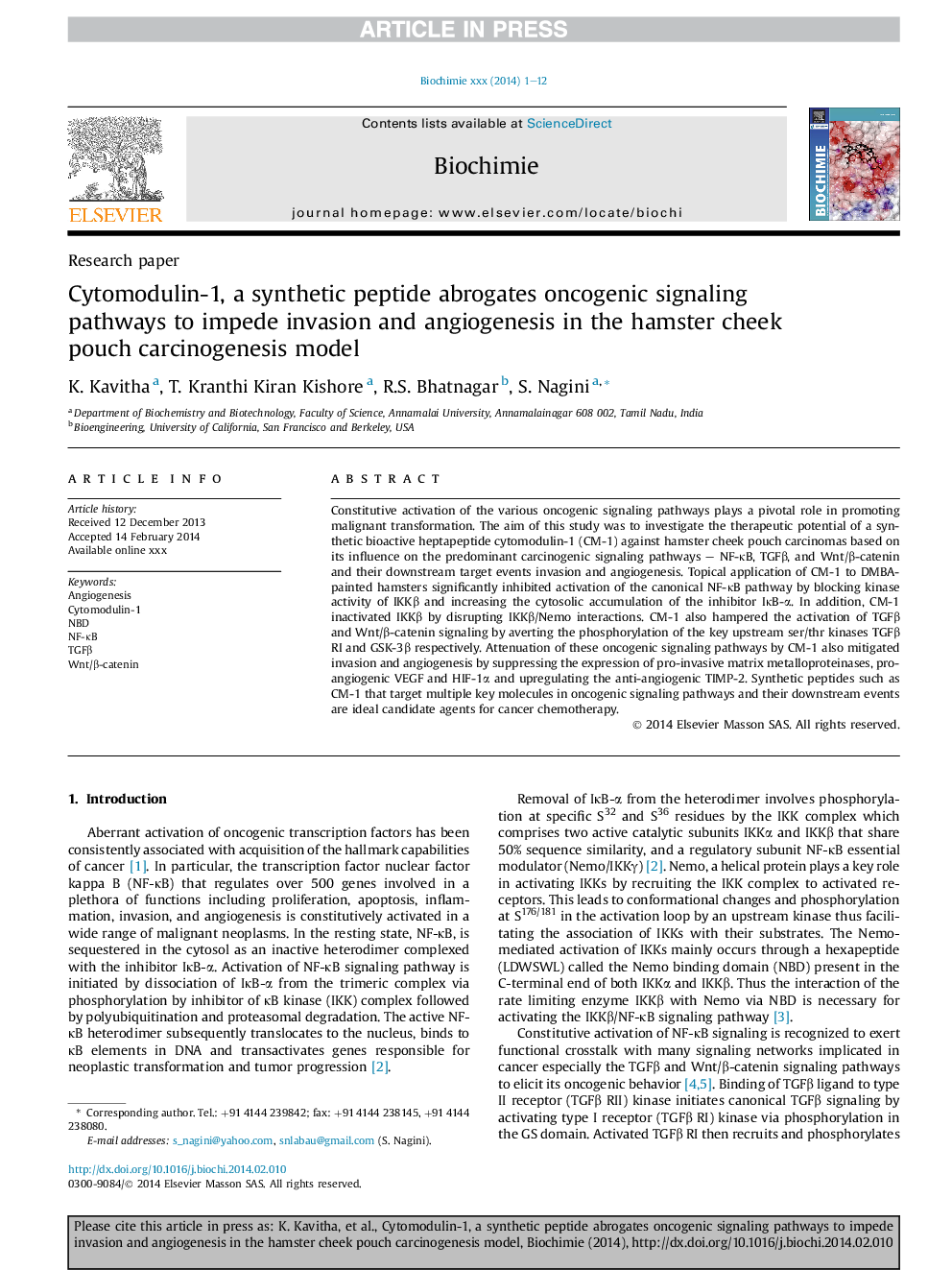| Article ID | Journal | Published Year | Pages | File Type |
|---|---|---|---|---|
| 8305279 | Biochimie | 2014 | 12 Pages |
Abstract
Constitutive activation of the various oncogenic signaling pathways plays a pivotal role in promoting malignant transformation. The aim of this study was to investigate the therapeutic potential of a synthetic bioactive heptapeptide cytomodulin-1 (CM-1) against hamster cheek pouch carcinomas based on its influence on the predominant carcinogenic signaling pathways - NF-κB, TGFβ, and Wnt/β-catenin and their downstream target events invasion and angiogenesis. Topical application of CM-1 to DMBA-painted hamsters significantly inhibited activation of the canonical NF-κB pathway by blocking kinase activity of IKKβ and increasing the cytosolic accumulation of the inhibitor IκB-α. In addition, CM-1 inactivated IKKβ by disrupting IKKβ/Nemo interactions. CM-1 also hampered the activation of TGFβ and Wnt/β-catenin signaling by averting the phosphorylation of the key upstream ser/thr kinases TGFβ RI and GSK-3β respectively. Attenuation of these oncogenic signaling pathways by CM-1 also mitigated invasion and angiogenesis by suppressing the expression of pro-invasive matrix metalloproteinases, pro-angiogenic VEGF and HIF-1α and upregulating the anti-angiogenic TIMP-2. Synthetic peptides such as CM-1 that target multiple key molecules in oncogenic signaling pathways and their downstream events are ideal candidate agents for cancer chemotherapy.
Related Topics
Life Sciences
Biochemistry, Genetics and Molecular Biology
Biochemistry
Authors
K. Kavitha, T. Kranthi Kiran Kishore, R.S. Bhatnagar, S. Nagini,
